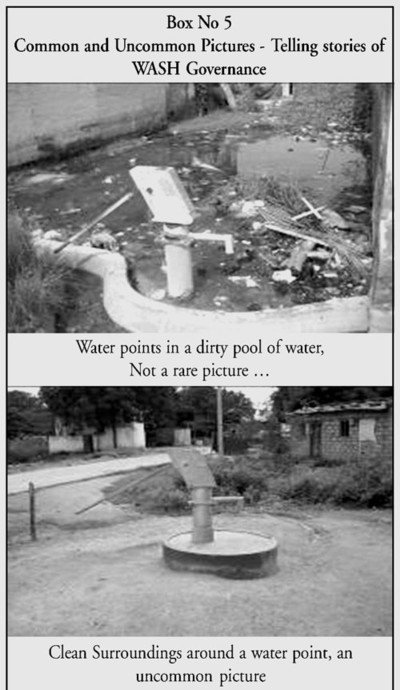Problems in the water, sanitation and hygiene (WASH) sector have their roots in socio-political issues rather than in technology. This paper presents the report of a survey in 107 villages in rural Andhra Pradesh to illustrate the influence of governance systems.

Methodology
As part of the WASHCost (India) project, a participatory survey was carried out in 107 villages in Andhra Pradesh across 9 agro-climatic zones. This consisted of carrying out focus group discussions with Gram Panchayats, SHGs, youth groups and SC/ST groups.Information was obtained for 19 indicators of WASH governance that can be broadly divided into the following groups:
- Institutional space and decision making
- Involvement in planning of WASH services
- Capacity building
- Operation and maintenance
- Financial management
Observations
The survey found low levels of participation, accountability, and transparency in the WASH sector in rural Andhra Pradesh.
The following observations were made:
- Functional village water and sanitation committees (VWSCs) were very few.
- No common platforms for decision making on WASH issues
- Limited space for women and SC/ST community participation in the decision making process
- Very little opportunity to contribute to the planning process for the wASH sector
- Ineffective capacity building efforts do not result in behaviour change
- Neglect of operation and maintenance of WASH systems leading to unhygienic surroundings being considered 'normal'
- Dysfunctional financial arrangements have crippled WASH delivery systems
However, in the few villages where WASH governance was strongest, the efficiency of service delivery was also high, with a good return on investments. Four such villages, all recipients of the Nirmal Gram Puraskar awards, are showcased in this paper. The reasons that enable efficient delivery of WASH services through the community are discussed.
Download the entire paper below